Top 10 Best Non-Toxic Cleaners in 2025 [Complete Room-by-Room Guide]
Maintaining cleanliness should never compromise health or sustainability. With increasing awareness of harmful chemicals, non-toxic cleaners are now a top choice for cleaning any space. They offer eco-friendly, safe solutions without sacrificing effectiveness. This guide explores the best non-toxic household cleaners, eco-friendly disinfectants, and plant-based cleaning products to keep every space spotless and healthy.
Why Use Non-Toxic Cleaners?
In recent years, there's been a seismic shift in how we approach household cleaning. As awareness grows about the potential dangers lurking in conventional cleaning products, more and more people are turning to safer alternatives. But why exactly has this change occurred, and what benefits can we reap from making the switch? Let's dive in and explore the fascinating world of non-toxic cleaners.
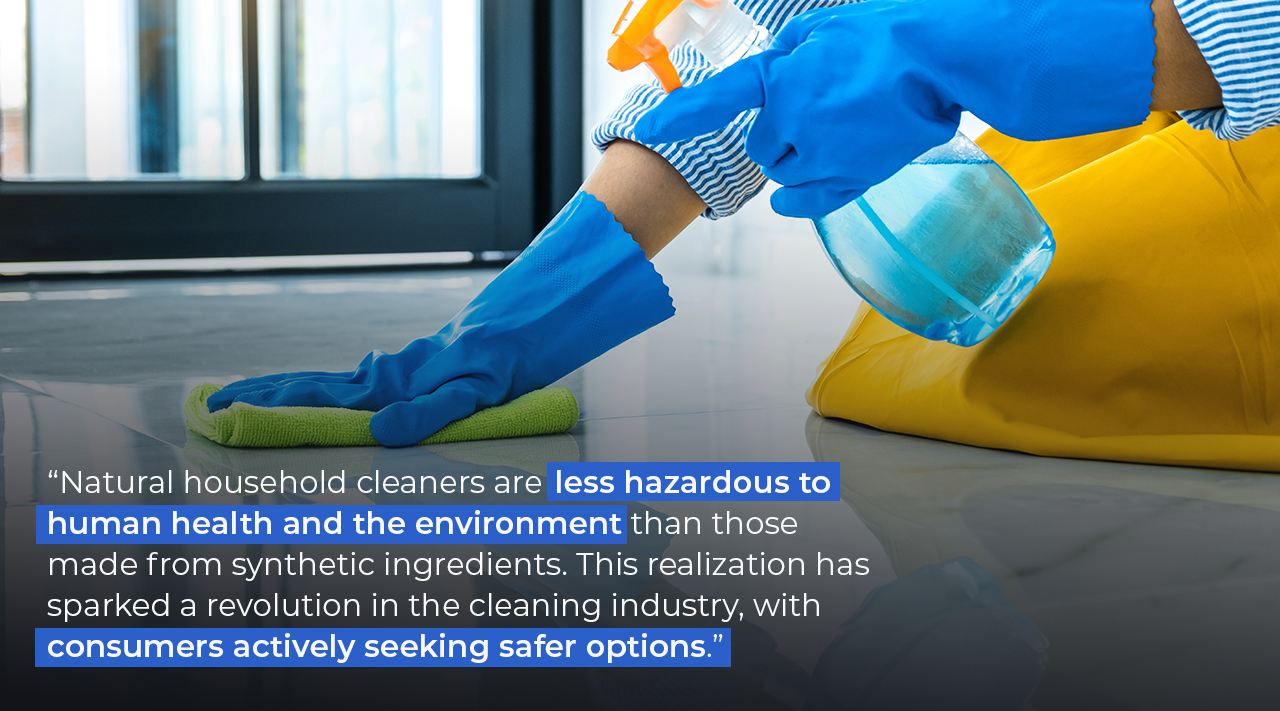
The Rise in Demand for Safer Cleaning Options
The surge in demand for non-toxic cleaning products isn't just a passing trend—it's a response to growing concerns about health and environmental impact. Natural household cleaners are less hazardous to human health and the environment than those made from synthetic ingredients. This realization has sparked a revolution in the cleaning industry, with consumers actively seeking safer options.
One of the driving factors behind this shift is the increasing awareness of the potential risks associated with traditional cleaning chemicals. Using conventional household cleaning chemicals has increased the prevalence of chronic diseases such as asthma and skin irritation. As people become more health-conscious, they gravitate towards products that won't compromise their well-being.
The rise of eco-consciousness has played a significant role in this trend. Consumers are now more aware of the environmental impact of their choices, including the cleaning products they use. Non-toxic cleaners often come in eco-friendly packaging and contain biodegradable ingredients, aligning perfectly with the growing desire to reduce our carbon footprint.
Benefits of Switching to Non-Toxic Cleaners
Using non-toxic and safe home cleaning products ensures you reduce indoor pollutants and keep vulnerable populations, like children or pets, safe. From green cleaning products to plant-based cleaning solutions, the focus on non-toxic options is growing. Here are some of the key benefits:
• Improves Air Quality: Many traditional cleaners emit VOCs, which affect indoor air. Non-toxic cleaners help maintain fresh air, ideal for offices and homes.
• Safer for All Settings: Non-toxic household cleaners are perfect for spaces like schools or gyms, where chemical sensitivity may be a concern.
• Environmentally Friendly: With eco-friendly cleaning products, you reduce water and air pollution, aligning with sustainable goals for commercial spaces.
• Cost-Effective Options: DIY natural cleaners are affordable, simple, and customizable.
Top Non-Toxic Cleaners by Room
As we explore the world of best non-toxic cleaners, it's important to note the growing demand for these products. The global market was valued at USD 5.86 billion in 2023 and is anticipated to reach USD 16.13 billion by 2032 at a CAGR of 11.9%. This significant growth reflects the increasing consumer preference for safer, eco-friendly cleaning solutions. Let's explore the top non-toxic cleaning products that are trending in 2025.
Best Eco-Friendly Cleaning Products by Room
Kitchen
For the heart of the home, I recommend a plant-based biodegradable cleaner that cuts through grease and food residue effectively. Look for products containing natural enzymes that break down organic matter without leaving harmful residues on food preparation surfaces.
Bathroom
The best non-toxic cleaning products for bathrooms often contain natural acids like citric or lactic acid. These ingredients are excellent at removing soap scum and hard water stains without the harsh fumes associated with conventional bathroom cleaners.
Living Room
For living spaces, a gentle, all-purpose cleaner that's safe for various surfaces is ideal. Opt for a product with natural essential oils that not only clean but also leave a fresh, non-toxic scent in your living areas.
Laundry Room
In the laundry room, look for plant-based detergents free from optical brighteners and synthetic fragrances. These top non-toxic cleaning products are gentler on fabrics and skin while still providing excellent cleaning power.
Best Overall Non-Toxic Cleaner: A Comparative Analysis
After extensive research and testing, I've found that the best overall non-toxic cleaner is a multi-purpose solution that combines effectiveness with safety.
This product stands out for its versatility, eco-friendly ingredients, and powerful cleaning action without harsh chemicals. It's suitable for various surfaces and tackles multiple cleaning tasks, making it a go-to option for environmentally conscious households.
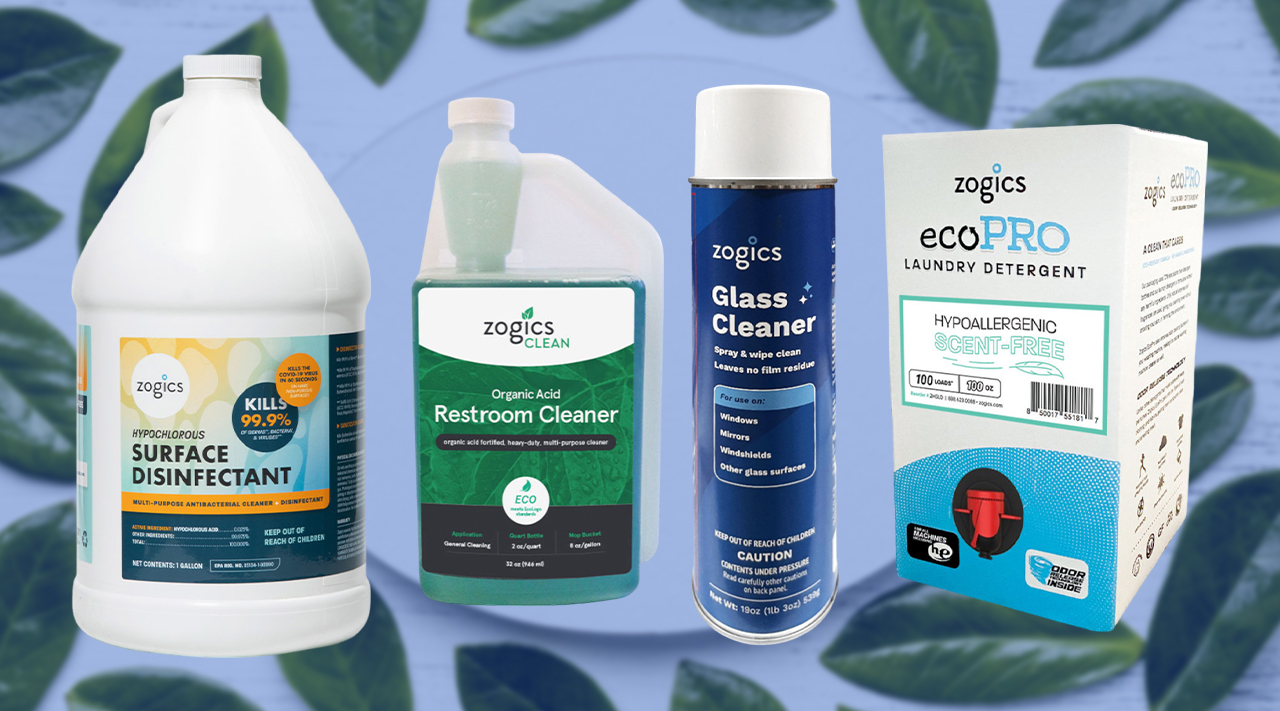
Specialized Non-Toxic Cleaners: Glass, All-Purpose, Disinfectants & More
Best Natural Cleaning Spray
The best natural cleaning spray I've found combines vinegar, essential oils, and plant-based surfactants. It's effective on multiple surfaces and leaves a streak-free shine without any chemical residue.
Best Natural Degreaser
For tough, greasy messes, a citrus-based or peroxide-powered degreaser stands out among the best non-toxic cleaners. The use of natural citrus oils and hydrogen peroxide cut through grease effectively while being safe for both you and the environment.
Best Stain Remover
When it comes to laundry, an oxygen-based stain remover paired with a concentrated, plant-based laundry soap offers excellent results. These products work together to tackle tough stains without resorting to harsh chemicals.
As we continue to prioritize our health and the environment, these top non-toxic cleaning products offer effective solutions without compromising on safety or cleaning power. Whether you're tackling kitchen grease, bathroom grime, or laundry stains, there's a non-toxic option designed to meet your needs while keeping your home safe and clean.
Key Considerations When Choosing Non-Toxic Cleaners
When it comes to selecting safe cleaning solutions for your home, there are several crucial factors to consider. As we become more aware of the potential hazards associated with traditional cleaning chemicals, it's essential to make informed choices about the products we use. Let's explore the key aspects to keep in mind when choosing non-toxic cleaners.
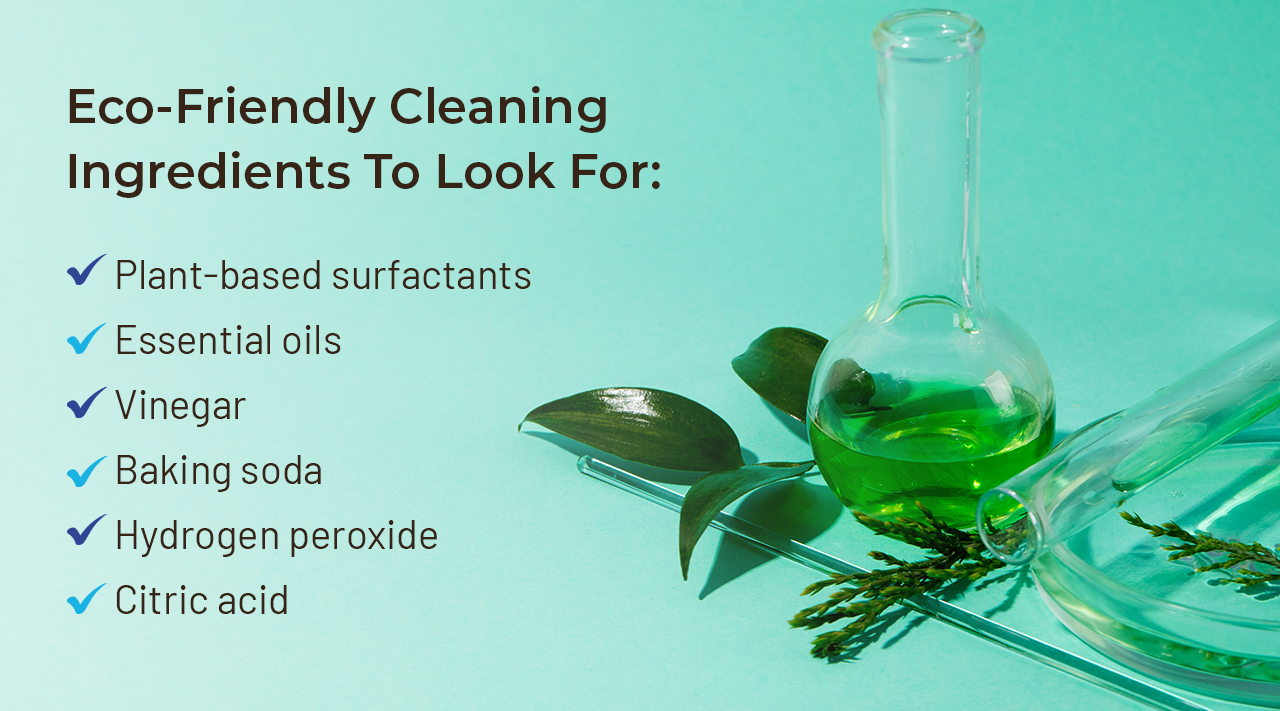
Ingredients to Look For and Avoid: A Clear Guide
When searching for eco-friendly cleaning agents, it's crucial to understand which ingredients are beneficial and which ones to steer clear of. Here's a quick guide:
Ingredients to Look For:
• Plant-based surfactants
• Essential oils (e.g., tea tree, lavender, lemon)
• Vinegar
• Baking soda
• Hydrogen peroxide
• Citric acid
Ingredients to Avoid:
• Phthalates
• Triclosan
• Ammonia
• Chlorine bleach
• Parabens
• Synthetic fragrances
Many of these safer ingredients can be found in products offered by companies like The Cleaning Station, which provides a range of eco-friendly cleaning supplies. Their all-purpose cleaners and bathroom cleaners, for instance, often incorporate plant-based ingredients that are effective yet gentle on surfaces and the environment.
Key Certifications to Look For
Certifications play a crucial role in ensuring cleaning product safety. Look for labels such as:
• EPA Safer Choice: Ensures products meet strict environmental standards.
• Green Seal and Eco Logo: Recognized certifications for sustainable products.
• USDA Certified Bio-based: Confirms the use of renewable resources.
These certifications indicate that the products have undergone rigorous testing and meet specific environmental and health standards. They provide an extra layer of assurance when choosing non-toxic cleaning chemicals for your home.
Deciphering "Natural" vs "Organic" vs "Non-Toxic": Demystifying the Labels
Understanding the differences between these terms is crucial for making informed decisions:
• Natural: This term isn't regulated and can be misleading. It generally implies that some or all ingredients are derived from natural sources, but it doesn't guarantee safety or eco-friendliness.
• Organic: In the context of cleaning products, "organic" typically means that the ingredients are grown without synthetic pesticides or fertilizers. However, not all organic ingredients are necessarily safe or non-toxic.
• Non-Toxic: This term suggests that the product is not harmful to human health or the environment when used as directed. However, it's not a regulated term, so it's important to verify claims by checking ingredients and certifications.
By understanding these key considerations, you can choose non-toxic cleaners that keep your home sparkling clean while protecting your health and the environment. Whether you're selecting all-purpose cleaners, disinfectants, or specialized cleaning products, prioritizing safety and sustainability will lead to a cleaner, healthier home environment.
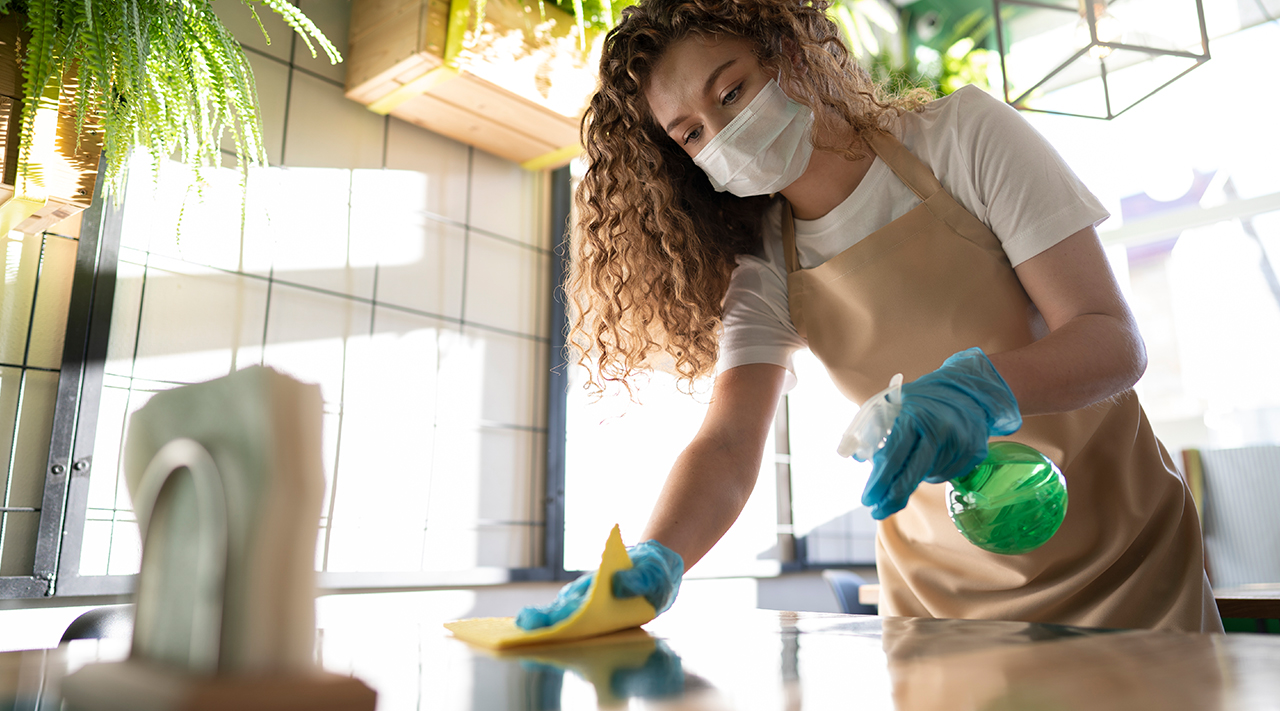
The Science Behind Non-Toxic Cleaning Agents: How They Work
As we delve into the world of non-toxic cleaning agents, it's crucial to understand the science that makes these products effective while remaining safe for our health and the environment. Let's explore how these natural cleaning agents work and compare them to their chemical counterparts.
Understanding Plant-Based Ingredients vs Chemical Alternatives
Non-toxic cleaning brands often rely on plant-based ingredients that harness the power of nature to clean effectively. These natural cleaning agents work through various mechanisms:
- Surfactants: Plant-based surfactants, derived from sources like coconut oil or corn, lower the surface tension of water. This allows the cleaner to spread more easily and lift dirt and grime from surfaces.
- Enzymes: Some non-toxic cleaning agents use enzymes to break down organic matter like food stains or grease. These proteins work by catalyzing specific chemical reactions, making them highly effective and targeted cleaners.
- Acids and Bases: Natural acids like citric acid from lemons or acetic acid from vinegar can dissolve mineral deposits and kill bacteria. On the other hand, bases like baking soda can neutralize odors and act as a gentle abrasive.
- Essential Oils: Many non-toxic cleaning brands incorporate essential oils not just for fragrance, but also for their antimicrobial properties. Tea tree oil, for instance, has natural disinfectant qualities.
Safety Tests and Regulations: What Consumers Should Know
When it comes to non-toxic cleaning agents, safety testing and regulations play a crucial role in ensuring product efficacy and consumer safety. Here's what you should know:
- EPA Safer Choice Program: This voluntary program encourages manufacturers to use ingredients that meet stringent human health and environmental criteria. Products with the Safer Choice label have undergone rigorous testing.
- Green Seal Certification: This independent, non-profit organization sets standards for sustainability and certifies products that meet these criteria, including many non-toxic cleaning brands.
- EWG Verification: The Environmental Working Group verifies products that meet their strict standards for transparency and health.
- USDA Certified Bio-based Product: This label indicates that the product contains a verified amount of renewable biological ingredients.
It's important to note that while the term "non-toxic" isn't regulated by the FDA, many reputable non-toxic cleaning brands voluntarily submit their products for third-party testing and certification.
Consumers should also be aware that even natural ingredients can cause allergic reactions in some individuals. Always test new products in a small area first, and read labels carefully for any potential allergens.
In conclusion, the science behind non-toxic cleaning agents is rooted in harnessing the power of natural, plant-based ingredients. These products work through various mechanisms to clean effectively while minimizing health and environmental risks. By understanding how these cleaners work and the safety measures in place, consumers can make informed decisions about the products they bring into their homes. Remember, a clean home doesn't have to come at the cost of your health or the environment – non-toxic cleaning agents offer a safe and effective alternative to traditional chemical cleaners.
Creating a Safer Environment: Practical Tips and DIY Solutions
In our quest for a cleaner space, we often overlook the potential hazards lurking in our cleaning products. About 53% of cleaning products assessed by EWG contain ingredients known to harm the lungs, and 22% contain chemicals reported to cause asthma. This startling statistic underscores the importance of choosing safe home cleaning products.
DIY Recipes for Effective Natural Cleaners Using Everyday Ingredients
Creating your own eco-friendly cleaning agents is not only cost-effective but also ensures you know exactly what's in your cleaners. Here are some simple recipes using common household products:
All-Purpose Cleaner
• Mix equal parts water and white vinegar in a spray bottle
• Add a few drops of lemon essential oil for a fresh scent
Glass Cleaner
• Combine 2 cups of water, 1/2 cup of white vinegar, and 1/4 cup of rubbing alcohol
• Use a microfiber cloth for streak-free cleaning
Bathroom Scrub
• Make a paste with baking soda and water
• Add a few drops of tea tree oil for its antibacterial properties
Carpet Freshener
• Sprinkle a mixture of baking soda and your favorite dried herbs or essential oils on the carpet
• Let sit for 15 minutes, then vacuum
These DIY solutions are not only safe cleaning solutions but also effective alternatives to commercial products.
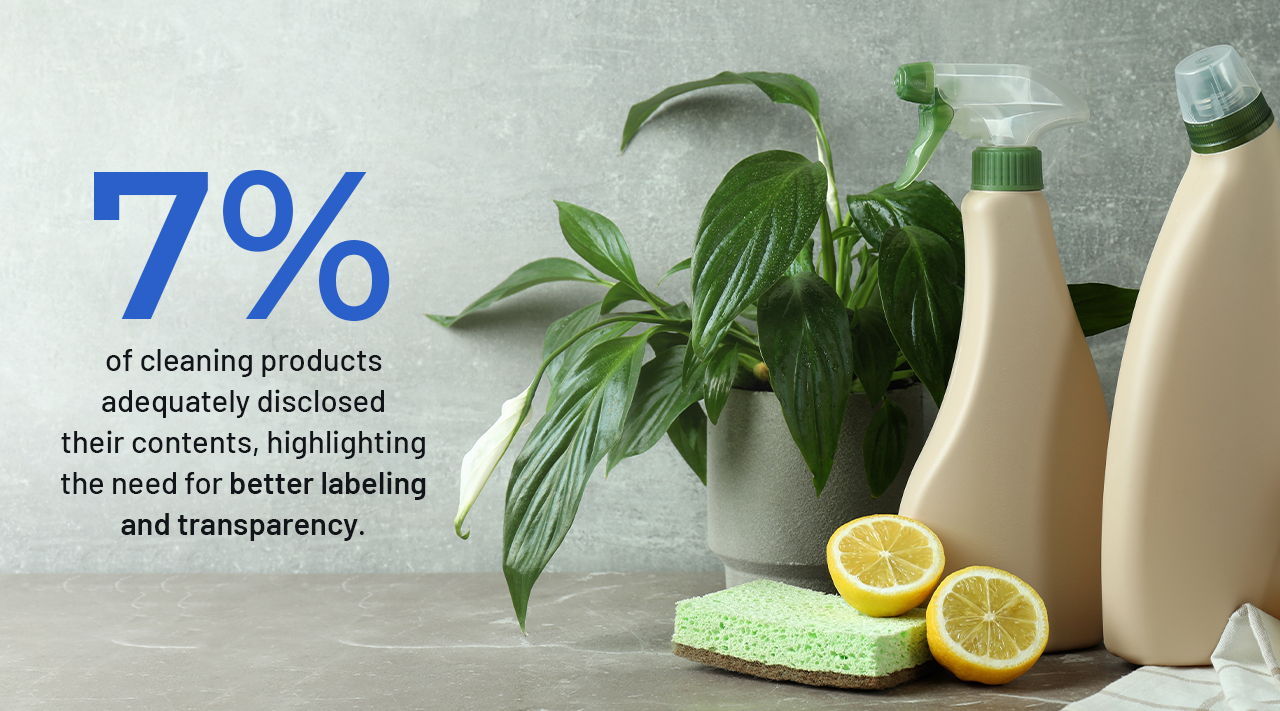
Greenwashing: How to Spot It and Make Informed Decisions
As the demand for safe home cleaning products grows, so does the prevalence of greenwashing - the practice of making misleading claims about a product's environmental benefits. Only 7% of cleaning products adequately disclosed their contents, highlighting the need for better labeling and transparency. To avoid falling for greenwashing tactics:
1. Look for specific claims: Vague terms like "eco-friendly" or "natural" aren't regulated. Seek products with clear, verifiable claims.
2. Check for certifications: Look for trusted third-party certifications like Green Seal or EWG Verified.
3. Read ingredient lists: Be wary of products that don't disclose full ingredient lists. The chemical 1,4-dioxane, a suspected human carcinogen, is a common contaminant of widely-used detergent chemicals, but it's often not listed on labels.
4. Research the company: Look into the brand's overall practices and commitment to sustainability.
Lifestyle Changes for a Healthier, Cleaner Home
Creating a safer home environment goes beyond just switching to eco-friendly cleaning agents. Here are some lifestyle changes to consider:
1. Declutter regularly: Less clutter means fewer surfaces to clean and less accumulation of dust and allergens.
2. Use natural air fresheners: Instead of synthetic air fresheners, try simmering herbs and citrus peels or using essential oil diffusers.
3. Implement a "shoes-off" policy: This simple rule can significantly reduce the amount of dirt and outdoor pollutants brought into your home.
4. Invest in indoor plants: Certain plants, like spider plants and peace lilies, can help purify indoor air naturally.
5. Opt for microfiber cloths: These reusable cloths can effectively clean most surfaces with just water, reducing the need for cleaning products altogether.
6. Ventilate regularly: Open windows when weather permits to improve indoor air quality and reduce the buildup of indoor pollutants.
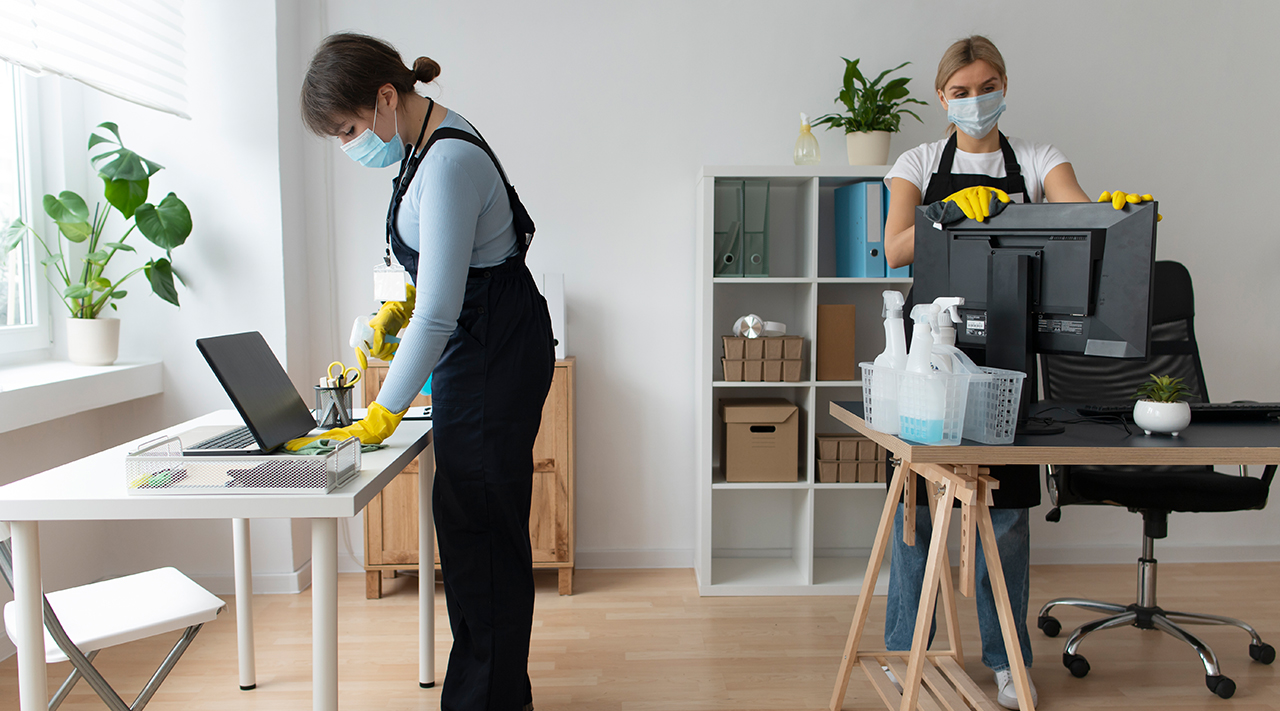
Conclusion: What is The Best Non Toxic Cleaner?
There’s no one-size-fits-all answer to what makes the best non-toxic cleaner—it ultimately depends on your space, surface types, and cleaning needs. Some formulas are better suited for kitchens and food-safe areas, while others excel in bathrooms, floors, or general multi-surface use.
The most effective non-toxic cleaners are those that strike the right balance between cleaning power and safety, using plant-based or biodegradable ingredients while avoiding harsh chemicals like ammonia, bleach, or synthetic fragrances. Whether you’re cleaning your home, office, or commercial space, opting for a non-toxic solution ensures a healthier environment for both people and pets—without compromising on results.
A Cleaner, Safer Future
Switching to non-toxic cleaners benefits not only your health but also the environment. Whether you're maintaining a home, managing a gym, or running a hotel, eco-friendly cleaning products and non-toxic household cleaners offer safe, sustainable solutions. Explore the best plant-based cleaning products today to make every space safer and cleaner!
FAQs
1. Are non-toxic cleaners effective for commercial use?
Yes! Many non-toxic cleaners are as powerful as chemical-based alternatives, particularly for gyms, hotels, and schools.
2. How can I verify the safety of non-toxic products?
Look for certifications like EPA Safer Choice or Green Seal. Transparent ingredient lists also help.
3. What are some affordable DIY natural cleaners?
Mix vinegar, water, and essential oils for an all-purpose spray, or use baking soda as a scrub for tough stains.
4. Do non-toxic cleaners cost more?
While some products are initially more expensive, concentrated formulas often last longer, reducing long-term costs.
5. Can non-toxic cleaners replace disinfectants?
Yes! Many eco-friendly disinfectants are available for safe sanitization without harsh chemicals.
Recent Posts
-
Different Types of Cleaning Products Explained
Whether you're cleaning an office, school, gym, or retail space, understanding cleaning product type …Jun 27, 2025 -
Flat Mop vs Spin Mop: Which One Cleans Best?
When it comes to keeping your facility clean, choosing the right mop can make all the difference. Bo …May 30, 2025 -
Sponge Mop vs. String Mop: Which is Right for Your Facility?
When it comes to keeping floors clean, both sponge mops and string mops are trusted cleaning tools. …May 23, 2025

![Top 10 Best Non-Toxic Cleaners in 2025 [Complete Room-by-Room Guide] Top 10 Best Non-Toxic Cleaners in 2025 [Complete Room-by-Room Guide]](https://cdn11.bigcommerce.com/s-kb6p5yc2tf/images/stencil/1280x711/uploaded_images/oct24-tcs-best-non-toxic-cleaners-1-feature-1-.jpg?t=1730482727)


